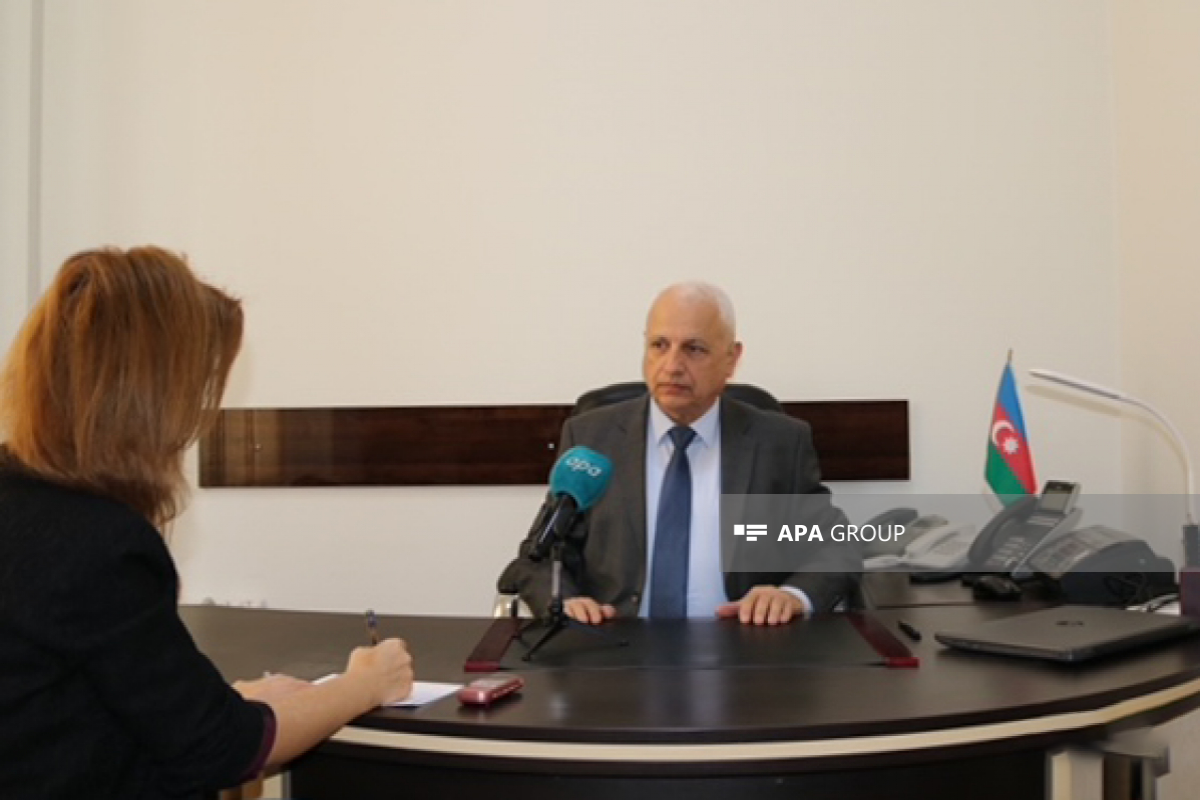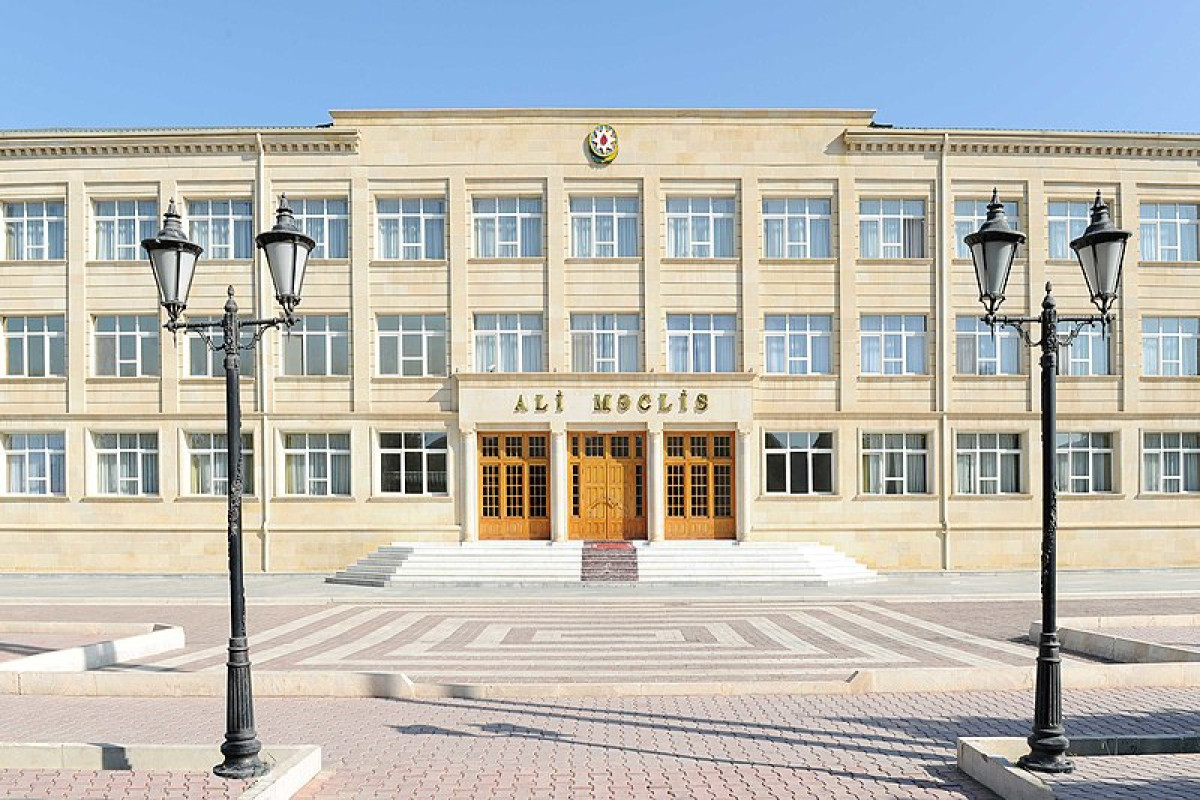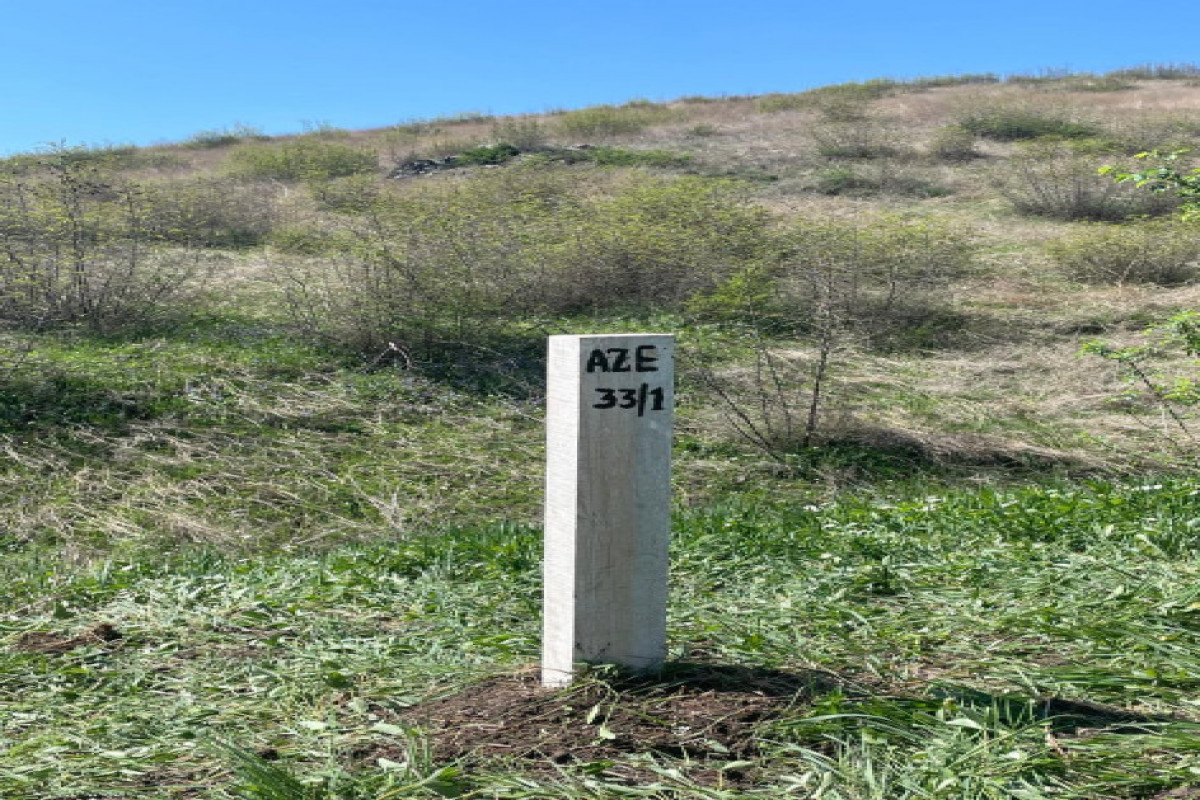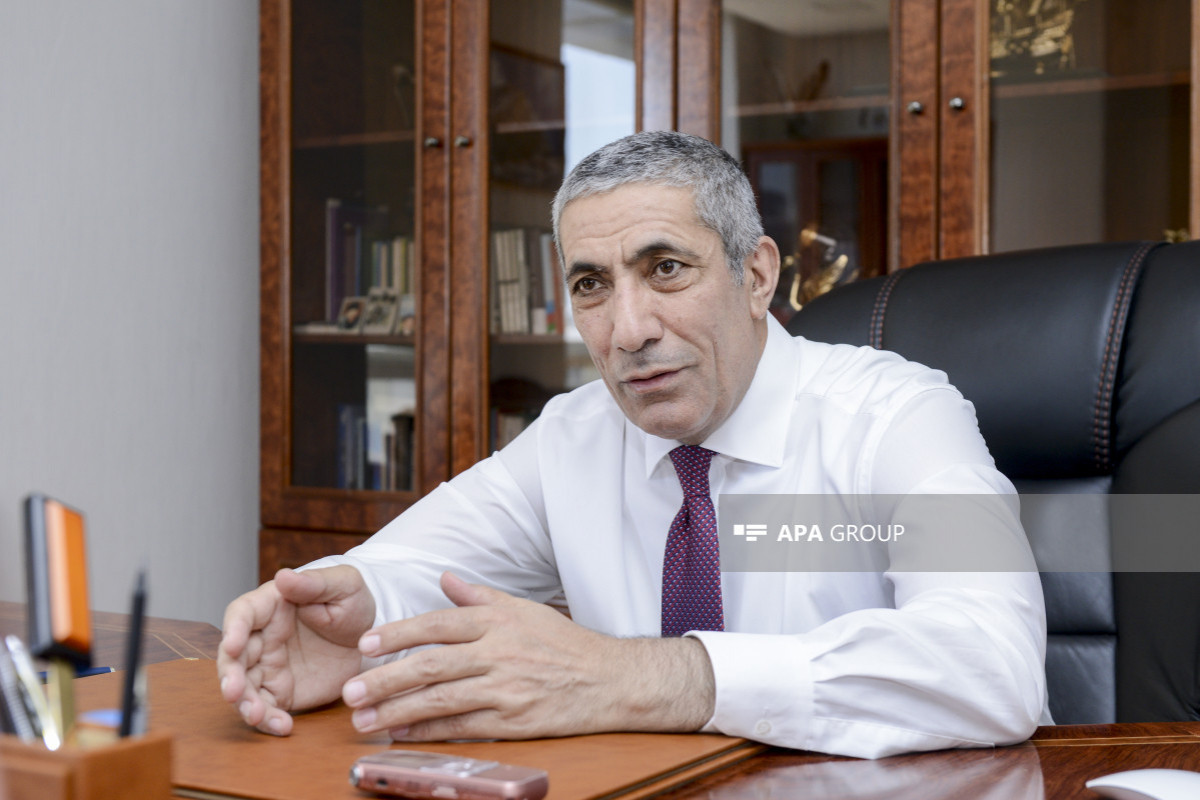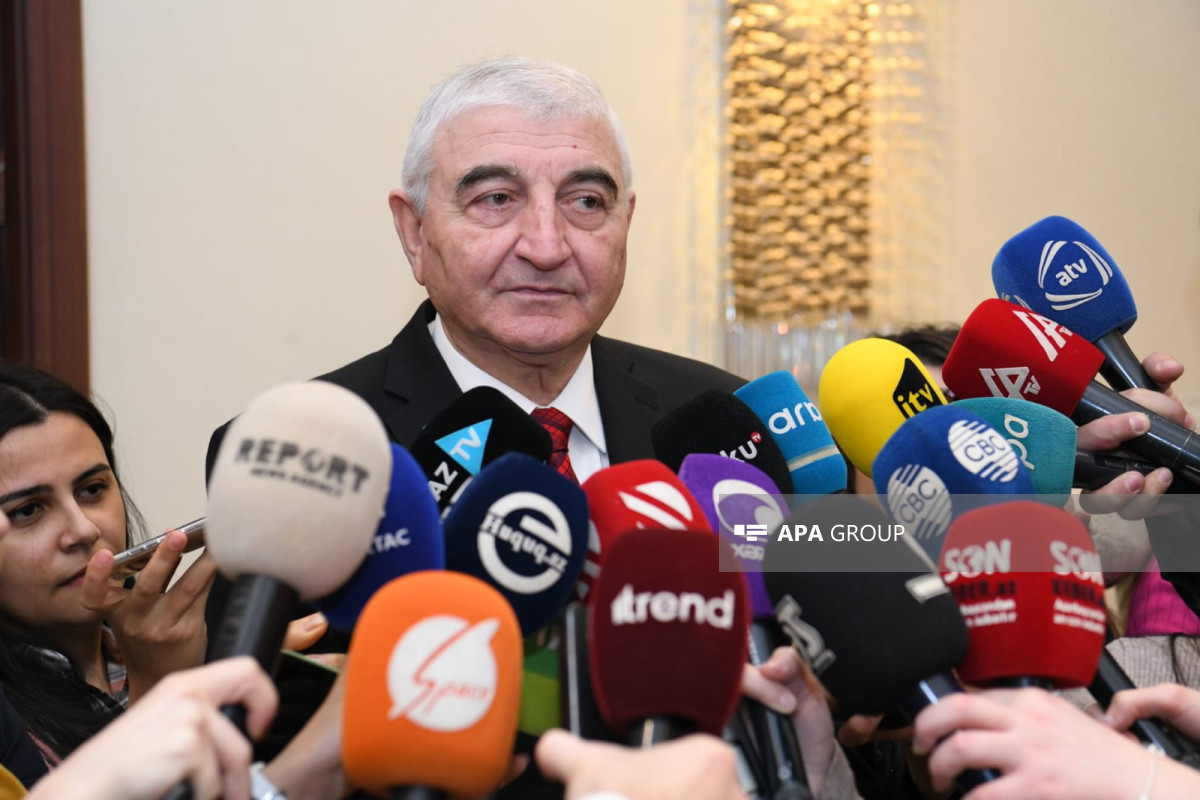Secretary of the State Commission on Prisoners and Missing and Hostage Citizens, Head of the Working Group Ismail Akhundov was interviewed by APA Agency
– The public knows that after the great victory achieved in the 44-day Patriotic war, State Commission on Prisoners and Missing and Hostage Citizens operated in enhanced mode. What are the main conditions required for the effective performance of the tasks set before the State Commission?
– One of the main duties of the State Commission on Prisoners and Missing and Hostage Citizens, founded in 1993, in order to eliminate the consequences of the humanitarian crisis that emerged as a result of Armenia’s aggression against Azerbaijan is to conduct the search for Azerbaijani citizens went missing in the armed conflict. Worthwhile to mention that until the Patriotic War started, i.e. in the First Karabakh war, 1480 Azerbaijani citizens were released from captivity-hostage.
378 of them were servicemen, and 1102 were civilians. There were 224 children, 357 women, and 225 elderly among the civilians. Currently, 3890 people were registered as missing people in the First Karabakh War by State Commission on Prisoners and Missing and Hostage Citizens. 3171 people of them are servicemen, and 719 are civilians. Among civilians, there are 71 minors, 267 women, and 326 elderlies.
Out of the total number of missing people, 872 people, including 29 children, 98 women, and 112 old people, were taken hostage or remained in the occupied territories. Armenia still does not provide information about their fate by concealing from international organizations the fact of detaining these people.
As Armenia demonstrated a non-constructive position in this field for 30 years of the occupation of our lands, a complicated situation emerged in the field of clarifying the further fate of the missing people. Of course, the great victory achieved in the Patriotic war created the condition for opening new opportunities in this field, and the state commission took the first successful steps. However, currently, there are two factors hindering the effective implementation of the duties set before the State Commission. The first one is that Armenia does not provide information about the grave sites of those who went missing in the First Karabakh war. The second obstacle is the contamination of the areas with landmines and unexploded ordnance. Of course, during these years, the Working Group of the State Commission collected and systemized some data about the grave sites of the missing people. However, as I mentioned, the contamination of the territories with landmines is the main factor hindering the effectiveness of the activity of the Commission.
– The issue of the people who went missing in the First Karabakh war, is one of the most discussed issues recently. The Armenian side also announced that the body remains belonging to those who went missing had been handed over to Azerbaijan. How many bodies remained in total were returned to Azerbaijan by the Armenian side? Does Armenia continue cooperation in this field?
– Shortly after the signing of the Tripartite Statement, the question of identifying the graves of the missing persons in the First Karabakh War, and carrying out excavation and exhumation works came up.
One point that I should mention in particular, is Armenia's statements in this field are more imitative in nature and aimed at forming a wrong opinion in the international community. During the past period, we have not witnessed any purposeful activity in the field of clarifying the further fate of the missing persons from Armenia in the first Karabakh war. It is known that all the persons who went missing in the First Karabakh War went missing in the territories occupied by Armenia and controlled by the armed forces of this country for 30 years. This means that the information about those persons is mostly on the side of Armenia. Even the Armenian officials do not deny it, they voiced opinions confirming it in their press statements.
after the tripartite statement, they witnessed certain steps taken by the Armenian side in this field, but these cannot be considered adequate for finding the missing persons and performing the tasks ahead: "I can even say without hesitation that the technology of providing corpses by Armenia is an additional step in the field of their identification. causes difficulties. The remains should be exhumed according to the rules accepted in the world and should be packed and transported according to special rules. If these rules are not followed, it is impossible to achieve the result in many cases.
The Secretary of the State Commission emphasized that the other side handed over the mixed remains of 148 people in 67 body bags from February 2021 to December 2022 from the area currently under the temporary responsibility of the Russian peacekeeping contingent: "However, the investigations carried out by experts and As a result of the appropriate expert examinations, it was determined that the mixed corpses provided by the other side belong to 117 people.
– How many remains are currently being worked on for identification?
– In general, during the period that passed after the signing of the Tripartite Statement, urgent and necessary works are being carried out for the identification of the remains of 415 persons believed to be by the experts of the relevant state institutions.
As I mentioned, 117 of these remains were given by the other side (Armenia). 115 during the excavation and exhumation carried out in the mass graves identified in the territory of Dashalti village of Shusha district, Edilli village of Khojavand district, Yukhari Seyidahmedli village of Fuzuli district, Farrukh and Dashbashi villages of Khojaly district, which were freed from occupation from February 2021 to November 2022. , it was also determined during construction works in the territories of Agdam, Shusha, Kalbajar, Tartar, Fuzuli and Zangilan regions that were freed from occupation. "The remains of 183 bodies belong to those who died during the First Karabakh War and were buried in 21 cemeteries located in 13 cities and regions of the Republic without recognition.
– Has the work of taking biological samples from the families of missing persons with the International Committee of the Red Cross (ICRC) already been completed? How many biological samples were taken?
– As the public has been informed, the State Commission, in accordance with the frame treaty signed with ICRC, has started the activity of collecting biological samples from the family members of those who went missing in the First Karabakh, since 2014. This important project, jointly implemented with the ICRC, was completed in December 2022. Currently, 10 805 biological samples were taken from family members of 3492 missing people. This means that experts have enough DNA material at their disposal to identify remains that have been identified and taken in liberated areas. However, of course, in case of necessity in the working process, in accordance with the requirements of the legislation, the work of taking additional biological samples will be launched. The collected biological samples were submitted to the labs accordingly, for extracting DNA profiles from them. Currently, necessary works are underway in the field of extracting DNA profiles.
– Which other projects are implemented by the State Commission jointly with ICRC? Which roles do these projects have in identifying the fate of prisoners, hostages, and missing citizens of Azerbaijan?
– First, it is worthwhile to mention that in accordance with the Action Plan approved by the Chairman of the State Commission, Mr. Ali Nagiyev, the State Commission as the most important task ahead in 2022, has started the exhumation of human remains from February in the grave sites believed to belong to Azerbaijani citizens lost in the First Karabakh War in the liberated territories.
During the first visit to the territory of Edilli village of Khojavand district from February 22 to 27, 2022, on the basis of witness statements and other materials collected at the State Commission, as a result of the exhumation process in the graves which are assumed to belong to the people went missing in the I Karabakh war, complete anatomical skeletons of 4 individuals and body remain belonging to 3 individuals were taken. At the same time, the possibility of the remains of more people in that cemetery was confirmed, and it was considered appropriate to continue the search-excavation works.
According to the ICRC's appeal to the State Commission in order to ensure high-level execution of exhumation work and coordinated cooperation, it was decided to implement a joint pilot project on the exhumation of human remains at six highly geographically accurate graves belonging to the Azerbaijani citizens who went missing in the First Karabakh War in the territories liberated from occupation.
According to the plan drawn up in a three-day training course organized by the ICRC in July last year, from August 3 to 5, a staff of 10 people consisting of the specialists of the Working group of the State Commission, Institute of Archeology, Ethnography and Anthropology of ANAS, ANAMA, and ICRC visited Edilli village of the Khojavand region and a preliminary inspection of the three graves there was carried out.
According to the plan, excavation works were continued in Edilli village of Khojavand region from September 14 to 30. During the excavation conducted in February of this year, in addition to the mass grave where the remains of 4 people were found, the remains of 2 people, and the remains of 3 people buried individually near the same mass grave, as well as bone fragments believed to belong to 1 or more people, were discovered and taken away.
In addition, another mass grave was discovered during the excavation of a new area identified in that area, and in the process of exhumation, a complete anatomical skeleton of 12 people was identified and taken from there. Artifacts discovered together with the skeletons suggest that they belong to the servicemen of the Azerbaijan Army. In the third search-excavation process, which continued from October 14 to 30 in Edilli village of Khojavand district, another mass grave was discovered and the remains of 5 people were removed.
The last phase of the pilot project related to the excavation planned for the current year has started in Yukhari Seyidahmadli village of Fuzuli district according to the coordinates provided by the ICRC, which was liberated from occupation on November 11, 2022. In accordance with the plan, the excavation process continued until November 25. In accordance with the collected information, there has been a mass grave in that area. Although mass graves were not found in that area during the excavation process, bone remains belonging to 6 people were found in different parts of the area and taken. According to the specialists, the reason for the scattering of human remains in the territory is that the territory was used by Armenia as a sown area during the occupation. During the 28-year occupation, repeatedly plowing the area with heavy equipment led to the loss of the exact location of the mass grave and the spread of the remains in the area. Excavation works in the area will be continued in the future.
In general, in February, September, October, and November of last year, the body remains belonging to 32 people were found and taken by 35-40-person personnel consisting of experts from the relevant state institutions and ICRC in the territories of Edilli and Yukhari Seyidahmadli villages of Khojavand district and Fuzuli district handed over to Forensic Expertise and Pathological Anatomy Unit of the Health Ministry of Azerbaijan for the purpose of carrying out appropriate expertise.
– A group consisting of specialists of the relevant bodies was established in connection with the search of the graves in the territories, liberated from the occupation. We ask you to give information about the activity of that group.
– As you mentioned, a group consisting of the specialists of the relevant state bodies was created in 2021 in connection with the search, exhumation, and identification of the body remains belonging to those who went missing in the I Karabakh war. According to the instructions of the Chairman of the State Commission Mr. Ali Nagiyev, certain changes were made in the composition of this group in 2022 and a more flexible mechanism was created.
In addition, taking into account the discovery of mass graves belonging to our citizens who went missing in the Azerbaijan-Armenia war and numerous exhumations will be carried out in the territories liberated from the occupation in connection with the new situation that existed after the historical victory achieved in the Patriotic War and that numerous exhumations will be carried out, proposals were prepared in order to carry out important works at the Commission to inform Ministry of Emergency Situations, Azerbaijan National Agency for Mine Action (ANAMA) and international community and to include a representative of the State Committee on Work with Diaspora and presented to the President of the Republic of Azerbaijan and the new composition of the Commission was approved by the Order of President No. 3589 dated 17.11.2022.
As I mentioned above, in 2021, a group consisting of the specialists of the relevant state bodies in connection with the search, exhumation, and identification of the body remains belonging to those who went missing in the I Karabakh war in 2021 successfully participated in the pilot project implemented in order to carry out excavation works in 6 graves together with ICRC in 2022 and gained high experience.
– Which works are carried out in order to identify the graves belonging to those who went missing in the I Karabakh war? Is there any possibility of discovering new mass graves?
– From the time the State Commission began its activities, the collection of information on missing persons, including graves belonging to them, has been in the spotlight. Based on the analysis of the materials, information on the mass and individual burial places of Azerbaijani citizens killed by the Armenian servicemen and Armenian separatist groups during the First Karabakh War is systematized. At the same time, there is close cooperation with the ICRC in this field. In accordance with the agreement reached, the ICRC submitted certain information contained in the institution to the State Commission last year. On the basis of the collected information, special maps were compiled. In addition to this, the Working group of the State Commission continues the work of collecting information about the graves. But as I mentioned above, the comprehensive information about the missing people is mostly on the Armenian side. Let’s hope that Armenia will find the opportunity to present this information and demonstrate constructive cooperation in this field.
– Which measures were taken in order to deliver the fact about the discovery of mass graves in the territories liberated from the occupation to the attention of the international community?
– Surely, the fact about discovery of mass graves in our territories liberated from the occupation is proof that Armenia violated the norms of international humanitarian law, especially the Geneva Conventions dated August 12, 1949. Informing the international community of these violations is an important and urgent task.
In order to convey to the world community the facts of the criminal acts committed by the Armenian servicemen against Azerbaijani civilians and military personnel and gross violations of international humanitarian law norms, during the visit of leaders of NGOs operating in Finland, Romania, Czech Republic, Poland, Serbia, Estonia, Belgium, US, UK, Jordan, Turkey, Kingdom of Netherlands, Nigeria, Portugal, Bosnia and Herzegovina, Albania, Kazakhstan, Kyrgyzstan, Georgia, Moldova and Lithuania, representatives of the trade union, well-known scientists, public figures, experts, journalists and military attachés of embassies operating in Azerbaijan to the Edilli village of the Khojavand region last year, they were informed discovered mass graves, searches of people who went missing as a result of the conflict, and measures carried out and to be carried out in this field.
Of course, measures in this area, especially in the field of legal assessment of war crimes committed by Armenia, will be continued together with the relevant state institutions of the Republic of Azerbaijan.


